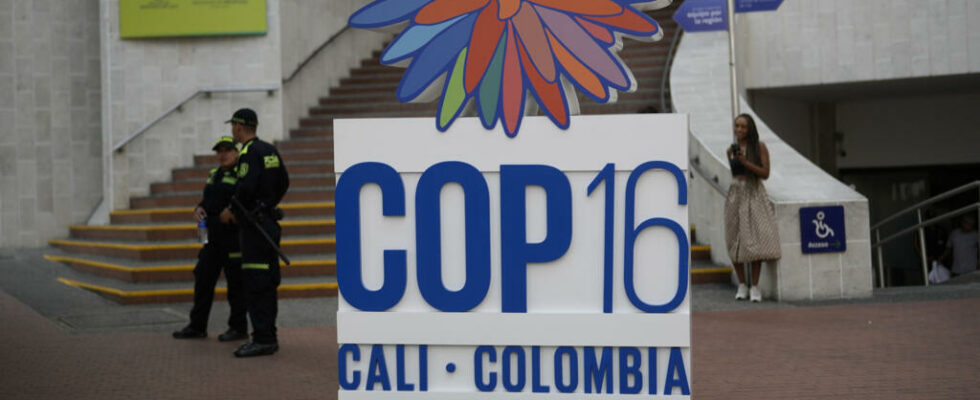In Cali, Colombia, discussions between the more than 190 countries gathered for COP16 Biodiversity are getting tough, although they are supposed to end this Friday, November 1. The irritating subjects remain the mobilization of new funding, as well as the question of sharing the benefits derived from the use of genetic data from plants and animals, data which have now been digitized. During the last negotiations in Montreal, Europe was the driving force behind ambition, but it seems less visible this time in Cali.
2 mins
With our special correspondent in Cali, Lucile Gimberg
While, for the first time in a Biodiversity COP, several heads of state, especially Latin Americanmade the trip to Colombia, the European Union is not represented by its Environment Commissioner. An agenda pitfall, it is argued by the European delegation in Cali, in Colombia.
The Commission is in the process of rebuilding its teams after the elections and the candidate commissioners will have their hearings next week. But this is not just a matter of political representation.
No European representation at COP16
Driving a strong ambition at the last COP in Montreal, the Europeans arrived after a series of environmental setbacks on their territory. Reauthorization of glyphosate for a decade, lowering of the environmental standards of the common agricultural policy (CAP) and, more recently, the plan to postpone the entry into force of the law against imported deforestation.
The one on the restoration of nature went well, but only just. It will be crucial to the international objective of stopping the destruction of ecosystems. Even if the Commissioner cannot be present, the ambition remains the same, we assure the Europe pavilion in Cali. Several European countries also announced new financial contributions at the start of the week.
In Cali, 196 countries have tried since October 21 to agree on how to achieve by 2030 the objectives set two years ago in the Kunming-Montreal agreement: placing 30% of the planet under minimum protection, halving the risks of pesticides and the introduction of invasive species, mobilizing 200 billion dollars per year for nature…
But three days before the end, the ballet of negotiators is still stuck in the rivalries between rich and developing countries, firstly on financial questions, a foreshadowing of the standoff expected in November at the COP29 on the climate of Baku.
Also readCOP16 in Cali: an inventory of preservation, towards a fund for biodiversity?
